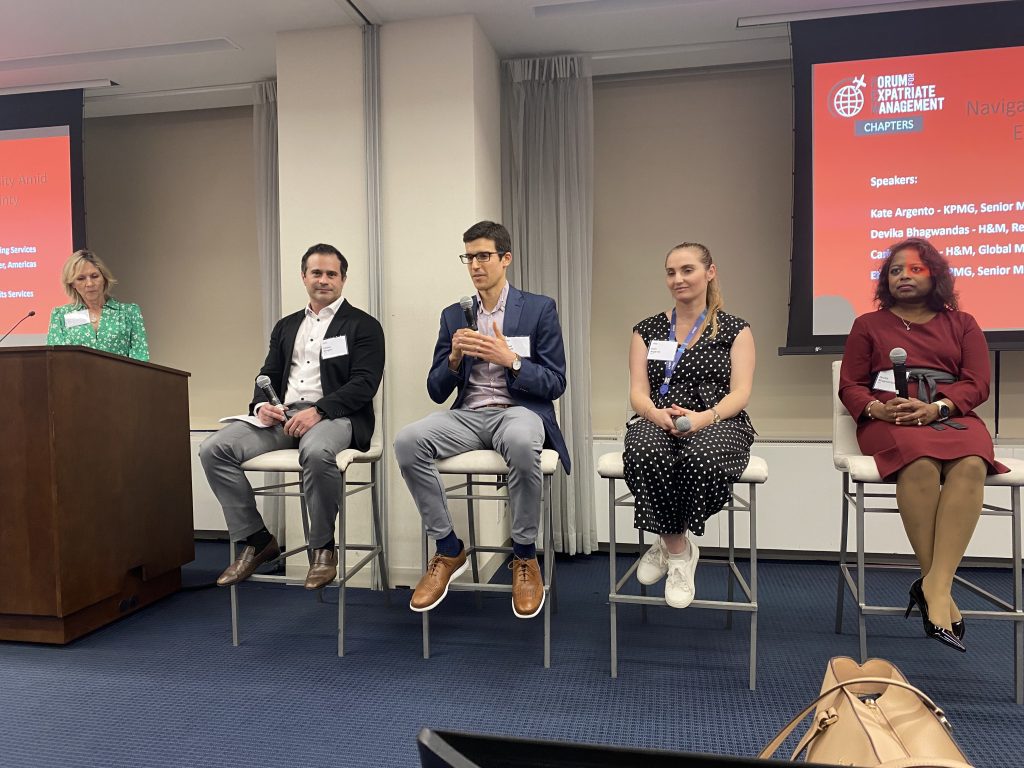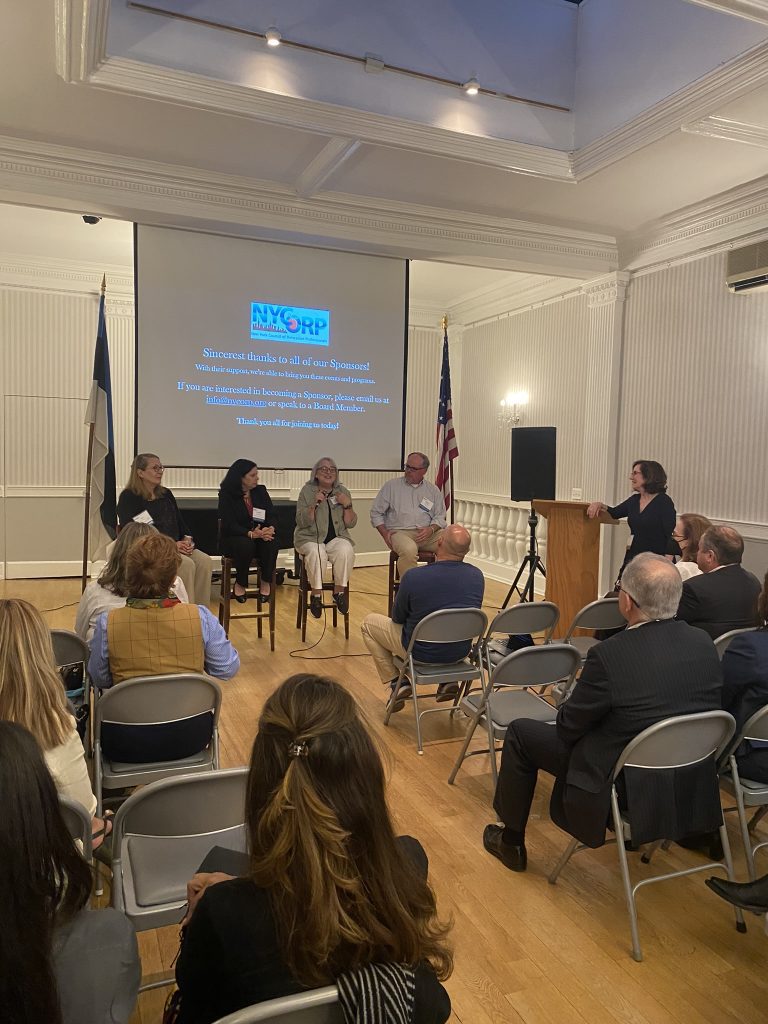From Travel to Mobility – Shared Lessons for Success in Corporate Programs
By Robin Spindel
Every fall, we return to the normal cadence of business, where a flurry of content-filled conferences, education days, summits, and meetings populate our calendars. As I attended three of these events in New York City, I noticed an intriguing trend: corporate travel managers and heads of global mobility share strikingly similar challenges. Despite their distinct functions—one optimizing travel programs, the other orchestrating complex relocations—both roles must balance cost, experience and efficiency to succeed. From each of these I connected the dots on data-driven decision-making, policy, cost control, employee experience and partnerships.
Reimagining Programs through Innovation

At the recent GBTA Lunch & Learn on How to Revisit and Renew Your Travel Program, Jennifer Steinke, veteran travel manager, underscored the importance of rejuvenating travel programs with fresh, innovative strategies. She pointed out that AI tools, such as chatbots, have become pivotal in assisting travelers, especially while they are traveling, and helping managers to ensure seamless policy compliance. For heads of global mobility, technology is equally transformative. Devika Bhagwandas from H&M shared during the FEM NYC Chapter Meeting how her team is introducing a tech portal to centralize data and forecast costs, eliminating manual spreadsheet work and streamlining operations.
Both roles find value in leveraging tech to personalize experiences and reduce complexities. Jennifer’s vision of a “policy of one”—using AI to tailor travel policies to individual needs—parallels the global mobility approach of crafting customized relocation packages. In an era of budget scrutiny, this level of personalization is essential for balancing employee experience and cost management.
The Power of Data: Telling the Right Story
Data serves as the foundation for effective decision-making for both corporate travel and global mobility leaders. Jennifer highlighted the importance of data in evaluating compliance, detecting program “leakage,” and implementing zero-based budgeting. By analyzing booking data, expense reports, and adherence trends, travel managers can proactively identify “bad behavior” and find savings opportunities.
Similarly, data-driven insights are indispensable in global mobility. Kate Argento, Senior Manager, GMS Comp and Benefits Services, KPMG, notes that technology and tracking are key, especially when moving large groups of individuals. Ethan Koreff, Senior Manager GMS Comp and Benefits Services from KPMG emphasized that understanding the types of moves requested, the demographics involved, and the associated costs, are key to shaping effective policies. As global mobility trends shift from traditional expatriate models to more localized contracts, data ensures that policies are not only cost-efficient but also attuned to modern workforce needs.
Striking a Balance: Cost Control Without Compromising Experience

Finding the sweet spot between cost control and a quality employee experience is a shared objective. At the GBTA Lunch & Learn, Jennifer pointed out that focusing on compliance and efficiency within travel policies helps meet budgetary targets without sacrificing the traveler’s journey. Providing enhancements like proactive enroute support or user-friendly expense reporting boosts compliance and morale, which can help maximize the program value.
Economic pressures have similarly impacted global mobility. During the FEM Meeting, speakers noted that many organizations are adjusting their relocation budgets while maintaining a high standard of employee experience. Devika from H&M discussed how her team shifted from traditional expatriate packages to locally adjusted contracts, balancing cost-effectiveness with positive employee outcomes. The core aim for both corporate travel and global mobility leaders is to create streamlined, satisfying experiences while maintaining fiscal responsibility.
Focusing on Employee-Centric Solutions
Placing employees at the heart of programs is a priority that unites both domains. Jennifer, during the GBTA Lunch & Learn, highlighted the importance of creating feedback loops between travelers and suppliers. Surveys and focus groups offer valuable insights into what travelers need, ensuring that policies are tailored to their preferences and driving compliance through satisfaction.
This employee-centric approach is mirrored in global mobility. Diane Whitcomb, Head of International Mobility, US at Chanel, emphasized the importance of having service providers act as true extensions of the mobility team through their Relocation Management Company, ensuring employees feel supported throughout their relocation. Tailoring assignments to individual needs, rather than relying on a one-size-fits-all model, not only enhances the relocation experience but also strengthens retention and engagement.
Managing Uncertainty: Policy Agility and Flexibility

Economic and geopolitical uncertainties have added another layer of complexity to these roles. At the NYCORP Fall Meeting, leaders highlighted the need for flexible policy structures that can adapt to economic fluctuations and shifting workforce dynamics. Mobility programs increasingly incorporate short-term assignments and locally focused contracts as companies look for ways to balance flexibility with budget constraints.
Corporate travel managers face similar challenges. Jennifer’s recommendation to frequently revisit and adapt travel policies underscores the importance of staying nimble. Zero-based budgeting allows travel managers to reallocate funds efficiently, ensuring programs stay aligned with changing travel volumes and company priorities. Agility and a deep understanding of external factors are essential for both roles as they develop adaptable policies that meet employee and business needs.
Partnering with Strategic Suppliers
Strong partnerships with suppliers are key for both corporate travel and global mobility leaders. At the NYCORP Fall Meeting, Caroline Pacht-Nathan, Global Mobility Partner at Munich Re emphasized that mobility leaders value service providers who understand their organization’s culture and provide personalized, consultative solutions. These partnerships extend beyond data analytics to offer strategic value, making them important to the success of a global mobility program.
Travel managers also benefit from suppliers who deliver actionable data and innovative tools. The ability to simplify bookings, ensure compliance, and provide on-trip support empowers travel managers to offer a seamless, efficient experience to employees.
Conclusion: A Shared Mission

While corporate travel managers and global mobility leaders may operate in different areas of HR, their challenges are very similar. Both roles navigate competing priorities that demand efficiency, employee satisfaction, and data-driven decision-making. They focus on staying agile and innovative, leveraging technology to align with changing external pressures while meeting goals to retain and attract talent.
At Synergy, we recognize these parallels and are equipped to support both travel and mobility programs. Our solutions bridge the gaps in compliance, experience and cost management, empowering organizations to create high-touch, tailored experiences for employees, leading to greater productivity when they are on assignments or business trips.
Robin Spindel, VP Global Marketing at Synergy, attended the following conferences to obtain the content for this blog:
- GBTA Lunch & Learn: How to Revisit and Renew Your TravelProgram 9/10/24
- NYCORP Fall Meeting 9/10/24
- FEM NYC Chapter Meeting 9/26/24





